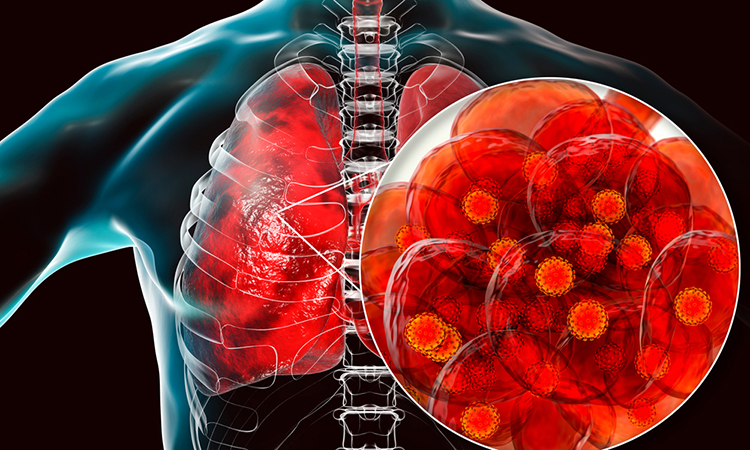Stem cells may be key for new vaccines against COVID-19
Posted: 17 June 2021 | Victoria Rees (Drug Target Review) | No comments yet
Scientists say COVID-19 may activate tuberculosis infection, but stem cell-mediated defence mechanisms could be targeted to develop vaccines.


In a novel study, scientists have reported that infection with a specific coronavirus strain reactivated dormant Mycobacterium tuberculosis (MTB) in mice. According to the researchers from the Indian Institute of Technology and University of Massachusetts, US, this knowledge may help to develop new vaccines for COVID-19 and avoid a potential global tuberculosis epidemic.
The researchers say that there are concerns that in the long-term, SARS-CoV-2 might activate dormant bacterial infections such as tuberculosis (TB) in select infected individuals, as TB is already present in one quarter of the world’s population. Viral infections such as the influenza virus or SARS-CoV-1 are known to cause transient immune suppression that leads to reactivation of dormant bacterial infection.
“There is an urgent need to study the association of COVID-19 with dormant TB reactivation to avoid a potential global TB pandemic,” explained lead investigator Dr Bikul Das. “It is important to understand the host defence mechanism against this disease to develop a better vaccine and/or treatment. We therefore postulated that, similar to bacteria, adult stem cells may also exhibit an altruistic defence mechanism to protect their niche against external threat.”
Investigators studied the coronavirus strain murine hepatitis virus-1 (MHV-1) infection in the lung in a mouse model (dMtb) of mesenchymal stem cell (MSC)-mediated MTB dormancy. This showed 20-fold lower viral loads than the dMtb-free control mice by the third week of viral infection and a six-fold increase of altruistic stem cells (ASCs), thereby enhancing the defence. Tuberculosis was reactivated in the dMtb mice, suggesting that dormant TB bacteria hijack these ASCs to replicate in the lung to cause pulmonary TB. Results suggest that these ASCs are transient (they expand for two weeks and then undergo apoptosis or cellular suicide) and exhibit antiviral activities against MHV-1 by secreting soluble factors.
“These findings are important because they reveal a novel ASC defence mechanism against mouse coronavirus infection, which could be used to develop novel therapeutic approaches against COVID-19,” noted Das. “The finding of TB reactivation in a stem cell-mediated Mtb dormancy mouse model during MHV-1 coronavirus infection indicates that in the long-term, post-pandemic, the SARS-CoV-2 virus might activate dormant bacterial infections. This is a significant finding considering the current coronavirus pandemic, where many individuals in India and other developing countries with dormant TB infection may see an increase in active TB cases post COVID-19. The ASC-mediated defence mechanism may be targeted to develop vaccines against viral infections and avoid a potential global TB pandemic.”
The study is published in The American Journal of Pathology.
Related topics
Disease research, Immunology, In Vivo, Stem Cells, Vaccine
Related conditions
Covid-19
Related organisations
Indian Institute of Technology, Massachusetts University
Related people
Dr Bikul Das


